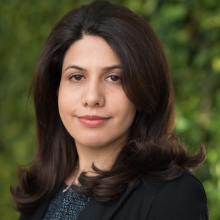Project Description
Despite the importance of Evapotranspiration and recharge fluxes, and their dramatic changes over time, there are no direct measurements – in situ or by remote sensing – that can allow any mapping or any global or regional estimation. As part of this project, the research group developed LIDA (Land Integrated Data Assimilation Framework), a unique observation-driven estimation methodology to indirectly capture and map evapotranspiration and recharge flux from implicit information contained in a sequence of land surface state observations of moisture (SM) and temperature (LST).
To address limitations of LIDA, this project will utilize mapped fluxes of evapotranspiration and recharge retrieved from LIDA in a genetic expression algorithm (GEP) to obtain simple explicit equations between evapotranspiration and recharge and their main climate and land/environmental drivers. These explicit equations can be easily comprehended and
adopted by the end users (i.e. water resource managers, decision makers, etc) for monitoring and forecasting of regional evapotranspiration and recharge fluxes in the study region.
Project Lead
 Leila Farhadi, PhD, Associate Professor of Engineering, George Washington University
Leila Farhadi, PhD, Associate Professor of Engineering, George Washington University
Dr. Farhadi received her PhD in Civil and Environmental Engineering with a focus on Hydrology and Water Resources from Massachusetts Institute of Technology (MIT). She received her B.Sc and M.Sc degree in Civil and Environmental Engineering from Sharif University of Technology, Iran. Upon receiving her PhD in 2012, she worked as a research scientist at the Global Modeling and Assimilation Office of NASA, Goddard before joining the department of Civil and Environmental Engineering of the George Washington University (GWU) in 2013. She is currently an Associate Professor of Engineering at GWU. Dr. Farhadi’s research is focused on understanding and modeling land surface and land-atmosphere interaction and exchange processes by utilizing innovative remote sensing, optimization and numerical modeling techniques. She is the recipient of the National Science Foundation (NSF) 2019 Early Career Faculty (CAREER) Award and the 2017 New (Early Career) Investigator award in Earth Sciences from the National Aeronautics and Space Administration (NASA).